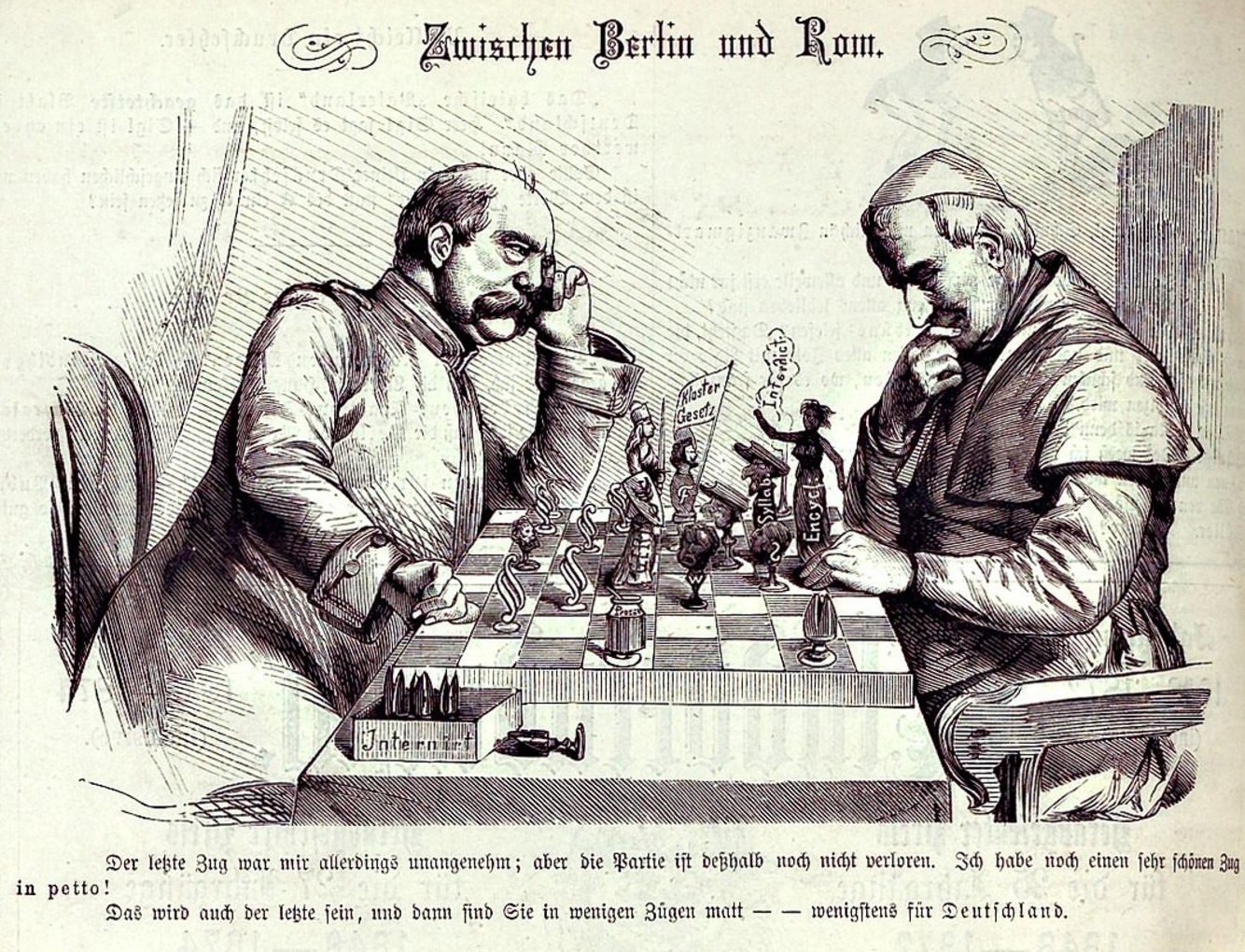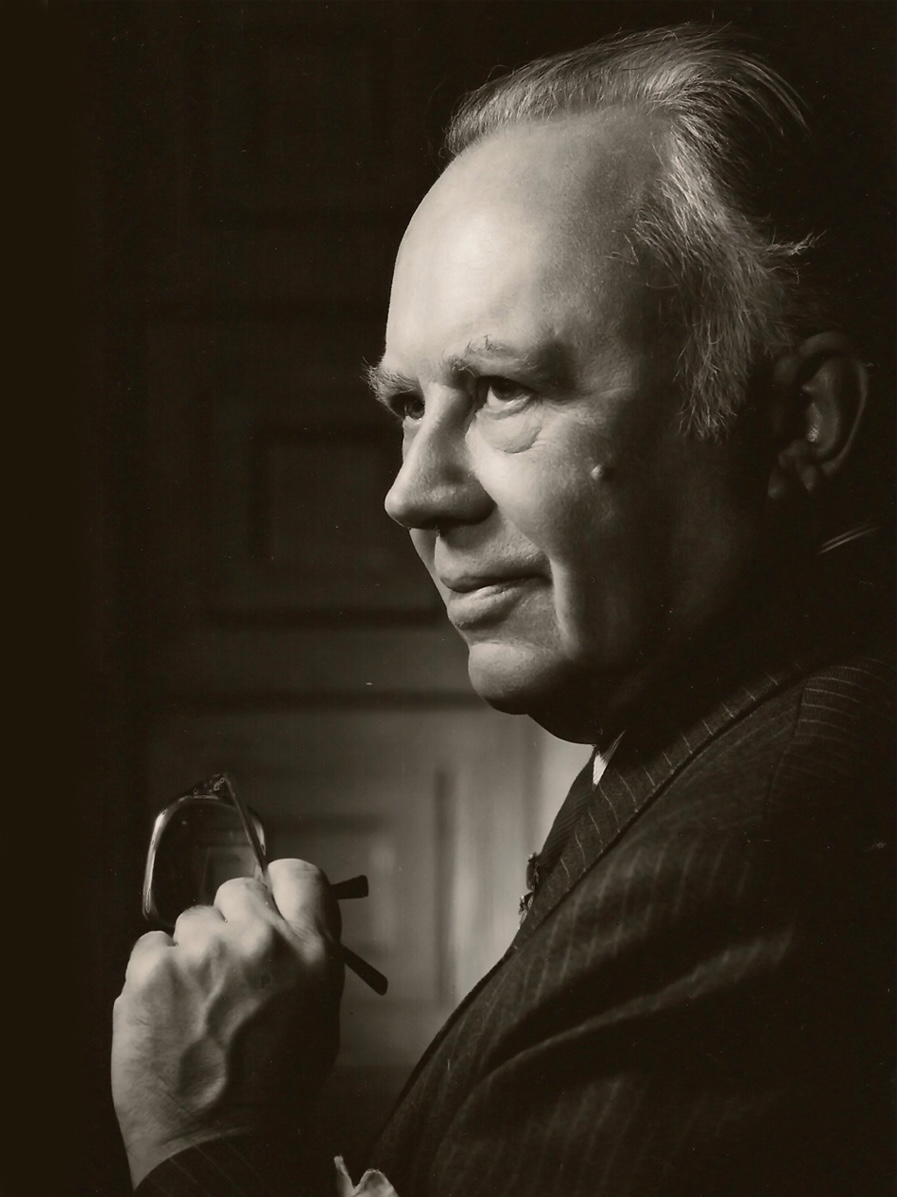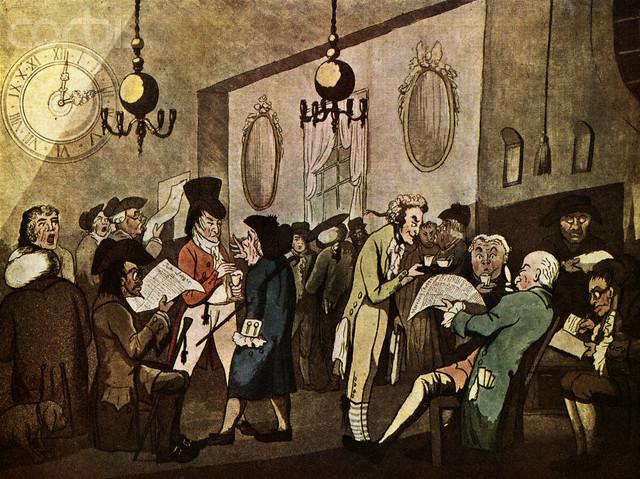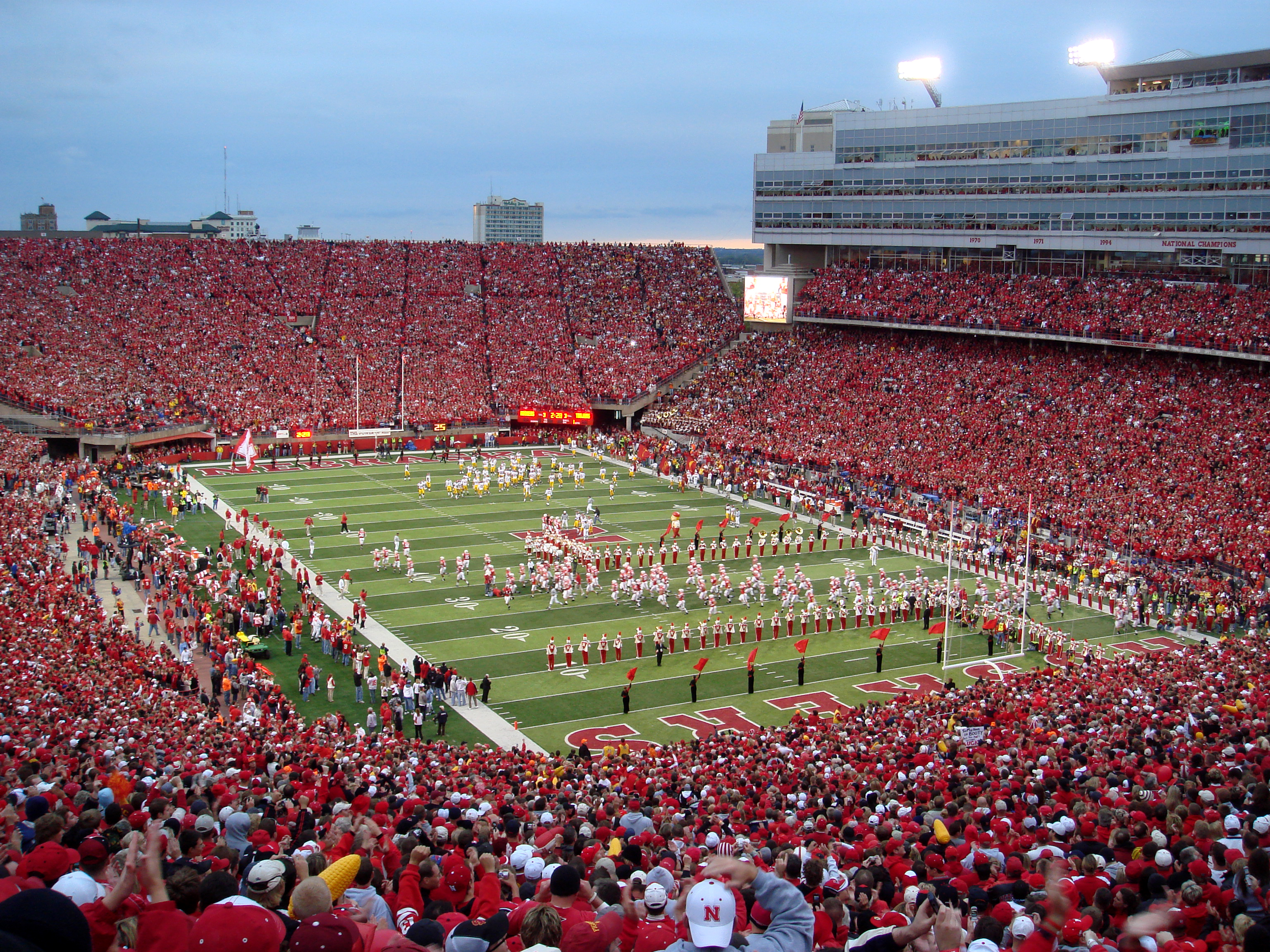|
Culture War
A culture war is a form of cultural conflict (metaphorical " war") between different social groups who struggle to politically impose their own ideology (moral beliefs, humane virtues, and religious practices) upon mainstream society, or upon the other. In political usage, ''culture war'' is a metaphor for "hot-button" politics about values and ideologies, realized with intentionally adversarial social narratives meant to provoke political polarization among the mainstream of society over economic matters, such as those of public policy, as well as of consumption. As practical politics, a culture war is about social policy wedge issues that are based on abstract arguments about values, morality, and lifestyle meant to provoke political cleavage in a multicultural society. Etymology Kulturkampf In the English language, the term ''culture war'' is a calque of the German word '' Kulturkampf'' (culture struggle), which refers to an historical event in Germany. The ... [...More Info...] [...Related Items...] OR: [Wikipedia] [Google] [Baidu] |
Cultural Conflict
Cultural conflict is a type of conflict (process), conflict that occurs when different culture, cultural Value (personal and cultural), values and beliefs clash. Broad and narrow definitions exist for the concept, both of which have been used to explain violence (including war) and crime, on either a micro or macro scale. Conflicting values Jonathan H. Turner defines ''cultural conflict'' as a conflict caused by "differences in culture, cultural Value (personal and cultural), values and beliefs that place people at odds with one another." On a micro level, Alexander Grewe discusses cultural conflict between hotel-guests of different culture and nationality as seen in the British 1970s sitcom ''Fawlty Towers''. He defines this conflict as one that occurs when people's expectations of a certain behavior coming from their cultural backgrounds are not met, as others have different cultural backgrounds and different expectations. Cultural conflicts are difficult to resolve as parties ... [...More Info...] [...Related Items...] OR: [Wikipedia] [Google] [Baidu] |
Calque
In linguistics, a calque () or loan translation is a word or phrase borrowed from another language by literal word-for-word or root-for-root translation. When used as a verb, "to calque" means to borrow a word or phrase from another language while translating its components, so as to create a new word or phrase ( lexeme) in the target language. For instance, the English word ''skyscraper'' has been calqued in dozens of other languages, combining words for "sky" and "scrape" in each language, as for example in German, in Portuguese, in Dutch, in Spanish, in Italian, in Turkish, and ''matenrō'' in Japanese. Calques, like direct borrowings, often function as linguistic gap-fillers, emerging when a language lacks existing vocabulary to express new ideas, technologies, or objects. This phenomenon is widespread and is often attributed to the shared conceptual frameworks across human languages. Speakers of different languages tend to perceive the world through common categori ... [...More Info...] [...Related Items...] OR: [Wikipedia] [Google] [Baidu] |
Conservativism In The United States
Conservatism in the United States is one of two major political ideologies in the United States, with the other being liberalism. Traditional American conservatism is characterized by a belief in individualism, traditionalism, capitalism, republicanism, and limited federal governmental power in relation to U.S. states, although 21st century developments have shifted it towards right-wing populist themes. American conservatives maintain support from the Christian right and its interpretation of Christian values and moral absolutism, while generally opposing abortion, euthanasia, and some LGBT rights. They tend to favor economic liberalism, and are generally pro-business and pro-capitalism, while opposing communism and labor unions. Recent shifts have moved it towards national conservatism, protectionism, cultural conservatism, and a more realist foreign policy. Conservatives often advocate for strong national defense, gun rights, capital punishment, and a defense of Wes ... [...More Info...] [...Related Items...] OR: [Wikipedia] [Google] [Baidu] |
Traditionalist Conservatism In The United States
Traditionalist conservatism in the United States is a Political philosophy, political and social philosophy and variant of Conservatism in the United States, conservatism. It has been influenced by thinkers such as John Adams and Russell Kirk. Definitions The 2010 book ''The Dilemmas of American Conservatism'', edited by Kenneth L. Deutsch and Ethan Fishman, has one paragraph about traditional conservatism. It says it is a variation of conservatism that is negative to American individualism, American inability to recognize the importance of social bonds and strong anti-authoritarian tradition of the United States. According to Deutsch and Fishman, traditional conservatives derive their views from Aristotle and Edmund Burke. They place emphasis on the rule of law as a means for liberty, leading by example in the fostering of reason and the existence of a transcendent morality. These views are only shared by a small minority of the American conservative movement and are exemplified ... [...More Info...] [...Related Items...] OR: [Wikipedia] [Google] [Baidu] |
Christopher Columbus Statue Torn Down At Minnesota State Capitol On June 10, 2020
Christopher is the English version of a Europe-wide name derived from the Greek name Χριστόφορος (''Christophoros'' or '' Christoforos''). The constituent parts are Χριστός (''Christós''), "Christ" or "Anointed", and φέρειν (''phérein''), "to bear"; hence the "Christ-bearer". As a given name, 'Christopher' has been in use since the 10th century. In English, Christopher may be abbreviated as "Chris", "Topher", and sometimes " Kit". It was frequently the most popular male first name in the United Kingdom, having been in the top twenty in England and Wales from the 1940s until 1995, although it has since dropped out of the top 100. Within the United Kingdom, the name is most common in England and not so common in Wales, Scotland, or Northern Ireland. Cognates in other languages *Afrikaans: Christoffel, Christoforus *Albanian: Kristofer, Kristofor, Kristoforid, Kristo *Arabic: كريستوفر (''Krīstafor, Kristūfar, Krístufer''), اصطفر (''ʔi� ... [...More Info...] [...Related Items...] OR: [Wikipedia] [Google] [Baidu] |
The Guardian
''The Guardian'' is a British daily newspaper. It was founded in Manchester in 1821 as ''The Manchester Guardian'' and changed its name in 1959, followed by a move to London. Along with its sister paper, ''The Guardian Weekly'', ''The Guardian'' is part of the Guardian Media Group, owned by the Scott Trust Limited. The trust was created in 1936 to "secure the financial and editorial independence of ''The Guardian'' in perpetuity and to safeguard the journalistic freedom and liberal values of ''The Guardian'' free from commercial or political interference". The trust was converted into a limited company in 2008, with a constitution written so as to maintain for ''The Guardian'' the same protections as were built into the structure of the Scott Trust by its creators. Profits are reinvested in its journalism rather than distributed to owners or shareholders. It is considered a newspaper of record in the UK. The editor-in-chief Katharine Viner succeeded Alan Rusbridger in 2015. S ... [...More Info...] [...Related Items...] OR: [Wikipedia] [Google] [Baidu] |
Alternative News
Alternative media are media sources that differ from established forms of media, such as mainstream media or mass media, in terms of their content, production, or distribution.Downing, John (2001). ''Radical Media''. Thousand Oaks, CA: Sage Publications. Alternative media includes many formats, including print, audio, film/video, online/digital and street art, among others. Some examples include the counter-culture zines of the 1960s, ethnic and indigenous media such as the First People's television network in Canada (later rebranded Aboriginal Peoples Television Network), and more recently online open publishing journalism sites such as Indymedia. Sometimes the term ''independent media'' is used as a synonym, indicating independence from large media corporations. However, the term "independent media" generally has a different meaning, indicating freedom of the press and independence from government control. In contrast to the mainstream media, alternative media tend to be "non ... [...More Info...] [...Related Items...] OR: [Wikipedia] [Google] [Baidu] |
Focus On The Family
Focus on the Family (FOTF or FotF) is an American Christian fundamentalism, Evangelical Protestant organization founded in 1977 in Southern California by James Dobson, based in Colorado Springs, Colorado. The group is one of a number of Evangelicalism, evangelical parachurch organizations that rose to prominence in the 1980s. As of the 2017 tax filing year, Focus on the Family declared itself to be a church, "primarily to protect the confidentiality of our donors". Traditionally, entities considered churches have been ones that have regular worship services and congregants. It most prominently lobbies against LGBT rights — including those related to same-sex marriage, marriage, LGBT adoption, adoption, and LGBT parenting, parenting — labeling it a "particularly evil lie of Satan". The organization also seeks to change public policy in the areas of abstinence-only sex education, sex education, Young Earth creationism, creationism, Abortion law, abortion, school prayer, state- ... [...More Info...] [...Related Items...] OR: [Wikipedia] [Google] [Baidu] |
National Rifle Association Of America
The National Rifle Association of America (NRA) is a gun rights advocacy group based in the United States. Founded in 1871 to advance rifle marksmanship, the modern NRA has become a prominent Gun politics in the United States, gun rights lobbying organization while continuing to teach Gun safety, firearm safety and competency. The organization also publishes several magazines and sponsors competitive marksmanship events. The group claimed nearly 5 million members though that figure has not been independently confirmed. The NRA is among the most influential advocacy groups in U.S. politics. The NRA Institute for Legislative Action (NRA-ILA) is its lobbying division, which manages its political action committee (PAC), the Political Victory Fund (PVF). Over its history, the organization has influenced legislation, participated in or initiated lawsuits, and endorsed or opposed various candidates at local, state, and federal levels. Some notable lobbying efforts by the NRA-ILA ... [...More Info...] [...Related Items...] OR: [Wikipedia] [Google] [Baidu] |
In-group And Out-group
In social psychology and sociology, an in-group is a social group to which a person psychologically identifies as being a member. By contrast, an out-group is a social group with which an individual does not identify. People may for example identify with their peer group, family, community, sports team, political party, gender, sexual orientation, religion, or nation. It has been found that the psychological membership of social groups and categories is associated with a wide variety of phenomena. The terminology was made popular by Henri Tajfel and colleagues beginning in the 1970s during his work in formulating social identity theory. The significance of in-group and out-group categorization was identified using a method called the minimal group paradigm. Tajfel and colleagues found that people can form self-preferencing in-groups within a matter of minutes and that such groups can form even on the basis of completely arbitrary and invented discriminatory characteristic ... [...More Info...] [...Related Items...] OR: [Wikipedia] [Google] [Baidu] |
American Political Science Review
The ''American Political Science Review'' (''APSR'') is a quarterly peer-reviewed academic journal covering all areas of political science. It is an official journal of the American Political Science Association and is published on their behalf by Cambridge University Press. APSR was established in 1906 and is the flagship journal in political science. Abstracting and indexing The journal is abstracted and indexed in the Social Sciences Citation Index, ''Current Contents'' / Social & Behavioral Sciences, International Bibliography of Periodical Literature, and the International Bibliography of Periodical Literature. According to the ''Journal Citation Reports'', the journal has a 2016 impact factor of 3.316, ranking it 5th out of 165 journals in the category "Political Science". Editorial team The first three managing editors were W. W. Willoughby (1906–1916), John A. Fairlie (1917–1925), and Frederic A. Ogg (1926–1949). For the 2020–2024 term, the journal is co-le ... [...More Info...] [...Related Items...] OR: [Wikipedia] [Google] [Baidu] |
Meta-analysis
Meta-analysis is a method of synthesis of quantitative data from multiple independent studies addressing a common research question. An important part of this method involves computing a combined effect size across all of the studies. As such, this statistical approach involves extracting effect sizes and variance measures from various studies. By combining these effect sizes the statistical power is improved and can resolve uncertainties or discrepancies found in individual studies. Meta-analyses are integral in supporting research grant proposals, shaping treatment guidelines, and influencing health policies. They are also pivotal in summarizing existing research to guide future studies, thereby cementing their role as a fundamental methodology in metascience. Meta-analyses are often, but not always, important components of a systematic review. History The term "meta-analysis" was coined in 1976 by the statistician Gene V. Glass, Gene Glass, who stated ''"Meta-analysis refers t ... [...More Info...] [...Related Items...] OR: [Wikipedia] [Google] [Baidu] |





